Featured
We’ve Strengthened Rivers Fire Fighting Capability – Fubara
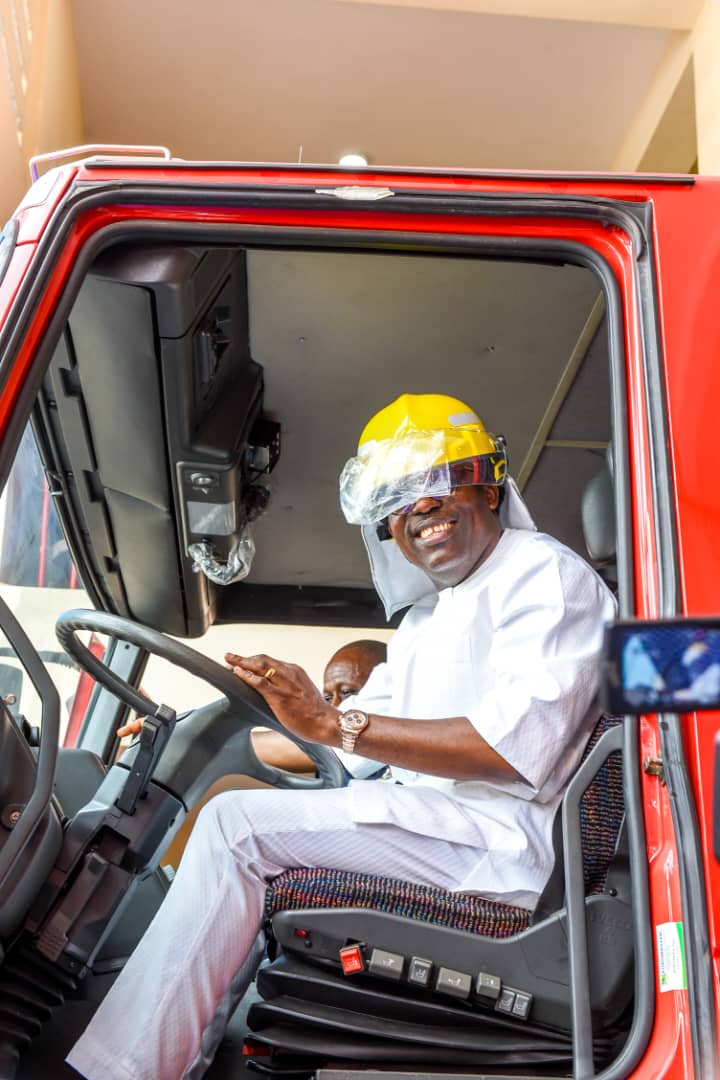
Rivers State Governor, Sir Siminalayi Fubara, has said that the modernised fire-fighting units with new buildings, necessary machinery, materials and equipment will strengthen the emergency response capability of personnel to fire incidences in the State.
The Governor pointed to how the provision will drastically reduce, if not eliminate, the vulnerability of Rivers population to fire disasters, as according to him, there will be timely assistance to victims to reduce damage and bolster conditions for sustainable development.
Governor Fubara, who gave the assurance while inaugurating the Rivers State Fire Service Headquarters Station, located by Isaac Boro Park Flyover, in Port Harcourt City Local Government Area, yesterday, said the gesture serves as a consolidation of the promise made, in line with his vision of governance: to provide quality service to the good people of Rivers State.
He explained that some years ago, the State was at the mercy of the multi-nationals that had functional fire trucks to respond to most fire incidences, and pointed to setbacks that greeted some emergencies, adding that the records of losses to fire incidences were colossal.
Governor Fubara said: “We lost the Mile One Market because we couldn’t respond adequately. We lost, even what we call, the Fruit Garden Market because we could not respond. Are we talking about houses, lives that have been lost in this State because of inadequate fire service?”
The Governor insisted that the purpose of governance is to provide such quality social services, protect lives and property, and make living comfortable for the people, asserting that his administration has not failed in those regards, and has continued to intensify the provision of services that have made Rivers people happy.
He said, “And, what we are doing today is to tell the good people of Rivers State, and to showcase to the world, that there is governance in this State. Not governance for the sake of governance, but governance that is purpose-driven, governance that is interested in projects that will change the lives of our people.
“Some days ago, a tanker fell along the Woji-Elelenwo Road. If it were before, lives would have been lost. But immediately, the fire service, not the multi-nationals, it was the Rivers State Fire Service that responded and arrested the situation. What else are we talking about?”
Governor Fubara said Rivers people are very happy with the consistent delivery of infrastructure projects that address the critical problems experienced by the people in the larger society, emphasising that he believed strongly that even if some persons are indulged in clandestine activities, and determined to discredit his administration, Rivers people are happy, indisputably so.
He explained, “We are not interested whether those people who are commissioned to undermine us are unhappy, that is not our business. Our business is about Rivers State and Rivers people. So, like the Commissioner said, we did not just do this for the sake of glamour. You come here, you see a painted house, every facility that is required in a well-built fire fighting facility, is all in this place.”
Governor Fubara said further: “You can image a government that has a fire service and the firemen are not working. It is only at the end of the month you pay them their salaries. You can see that they were not happy and unproductive. But today, they are happy because they have a big responsibility now ahead of them: to ensure that lives and property of the good people of Rivers State are adequately protected. So, I want to thank you for this particular spirit at this moment.”
Governor Fubara commended the Commissioner for Special Duties, Dr Sam Anya, for driving the process to conclusion, and the contractor for delivering the project on schedule, and assured that his administration will continue to ensure the protection of lives and property while defending the Constitution of the Federal Republic of Nigeria.
Governor Fubara also told Rivers people to expect the provision of more basic amenities, unbiasedly, and advised those in charge of the firefighting equipment to safeguard and protect them so that they can serve their purpose maximally.
Providing the project description, Rivers State Commissioner for Special Duties, Dr Samuel Anya, explained that since the first fire service station was built in the 1960s, this was the first time the facility is being remodeled and upgraded, emphasising that certain features were introduced and added to make the station comparable to fire service stations nationally.
He stated: “We have gym, sick-bay, offices and state-of-the-art equipment that we will use to combat fire. Your Excellency, we have also, new fire trucks that you have acquired. Before now, we did not have any truck, and when incidents happen, we have to call the Federal Fire Service or call Agip or Shell Fire Service. But thank God that His Excellency, in his wisdom, has given us state-of-the-art facility, and we don’t need to call any other person again.”
In his address, Head of Local Government Administration, Port Harcourt City Local Government Area, Mr. Clifford Paul, said Governor Fubara has turned the once dilapidated fire service station and its equipment into a modern masterpiece, which represents a significant milestone in the collective commitment towards tackling fire incidences.
Mr Paul stated that it will certainly enhance the capacity of personnel and reinforce their preparedness to respond to emergencies in the event of fire outbreaks.
Featured
Nigeria’s Sustainability Challenges Are Not Insurmountable, Says Ibas
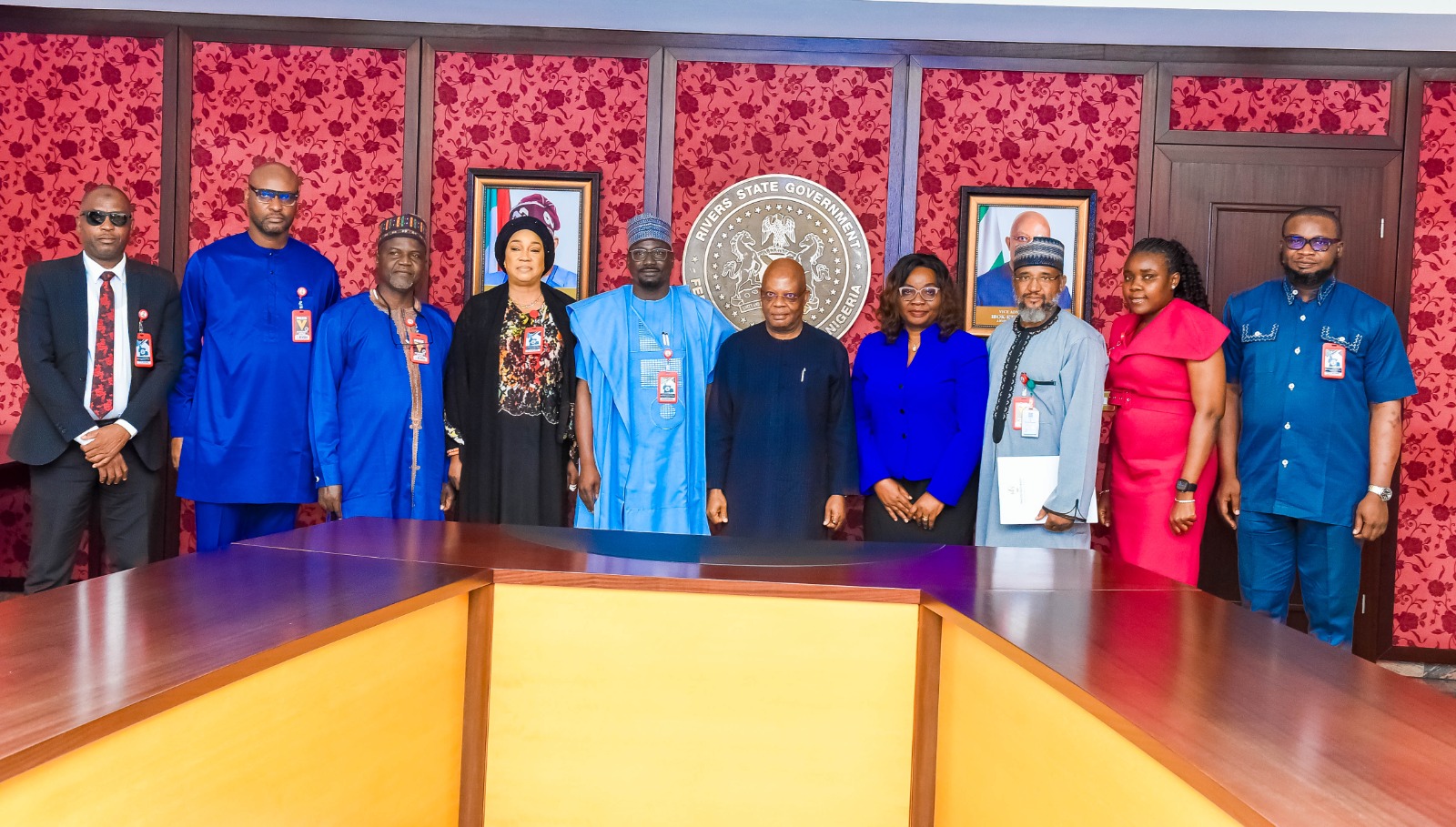
The Administrator of Rivers State, Retired Vice Admiral Ibok-Ete Ekwe Ibas, says Nigeria’s sustainability challenges can be overcome by aligning applicable principles of accounting ethics and environmental stewardship.
The Administrator indicated that by investing in green skills, civic engagement and being accountable, not only in financial deficits but ecological practices, Nigeria can build a nation that thrives within the global entity.
Retired Vice Admiral Ibas noted this in a keynote address during the opening ceremony of the Institute of Chartered Accountants of Nigeria (ICAN) 8th Southern Zonal Conference in Port Harcourt, yesterday.
Expatiating on the theme, ‘Eco-Disruption and Sustainability Challenges: The Way Forward,’ the Administrator, represented by Secretary to the State Government, Prof. Ibibia Lucky Worika, stressed that the topic was timely, especially against the background of recent changes in world environment.
According to him, “Our world is changing. Climate change, deforestation, pollution, and unsustainable consumption patterns are no longer abstract concerns. They are here, disrupting ecosystems, economies, and everyday life from the rising flood waters of the Niger Delta to the advancing desert sands in the north.
“Accountants and Eco-Disruption are an unlikely but vital alliance. It is not every day that you see a room full of accountants discussing eco-disruption. After all, when we think of accountants, we picture balance sheets, not biodiversity; ledgers, not lagoons; profit margins, not mangrove swamps. And yet, here we are about to talk climate change with people whose natural habitat is the spreadsheet.
“I must say, if the planet knew its fate was being discussed by accountants, it might feel strangely reassured… or start worrying about whether we are about to amortize the ozone layer. But in truth, your role in this conversation is critical. Because sustainable development is not only about planting trees, it’s about restructuring systems. It’s about applying logic, measurement, discipline, and ethics to our collective footprint. These are things accountants excel at.
“In the Niger Delta, where we are gathered today, the evidence is stark, coastal erosion and sea-level rise are threatening entire communities. Biodiversity is in decline, with mangrove forests and aquatic life under siege from oil pollution and invasive species. Rainfall patterns are shifting, compromising agriculture, food systems and freshwater supplies. Oil spills, bush burning, and deforestation continue to erode environmental health and human livelihoods. These disruptions not only threaten our environment, they destabilize our economy, our security and our very identity as a people.”
Vice Admiral (Rtd.) Ibok-Ete Ekwe Ibas, further stressed that strategies to develop effective policy towards environmental stewardship must change to ensure institutional reforms in cognisance of socio-economic, environment and human sustainability.
“The four pillars of environmental, economic, social, and human sustainability must now guide our policy choices and institutional reforms. We must move from extractive to regenerative systems.
“We must rethink how we produce, consume, and account for the value we create not just in financial terms, but in ecological and social impact as well. Strengthen environmental governance and community engagement, support clean energy with targeted fiscal policies and green financing, promote afforestation and mangrove restoration, intergrate sustainability into educational curricula and professional ethics, including accounting practices and invest in data, transparency and inclusive planning at all levels of government and industry,” he said.
Earlier, the President of ICAN, Mallam Haruna Nma Yahaya, while appreciating the Government of Rivers State for its hospitality, noted that, Nigeria’s renewable energy sector alone has the capacity to reduce unemployment challenges.
“The renewable energy sector alone has the potential to create over 300,000 jobs and contribute $7.4 billion annually to our GDP by 2030 if properly harnessed. Moreover, aligning our policies with the United Nations Sustainable Development Goals, particularly Goals 7, 12, and 13, could unlock more than $1 trillion in market opportunities for Africa by 2030. Eco-disruption, therefore, is not merely a challenge; it is also an invitation to innovation and leadership.
“As chartered accountants, we occupy a unique position at the intersection of finance, governance, and sustainability. We are called to champion the sustainability agenda through improved environmental accounting, sustainability reporting, and innovative green financing mechanisms. We can lead the way by promoting ESG disclosures and adopting the International Sustainability Standards Board frameworks, ensuring that our businesses and institutions not only comply with global requirements but also contribute meaningfully to sustainable development.
“Integrating climate resilience into budgeting and incentive eco-friendly investments will allow Nigeria to build a low-carbon economy while attracting green financing and stimulating growth in climate-smart sectors. Furthermore, by promoting public-private partnerships for green infrastructure, we can help the nation achieve its Net-Zero Energy Transition Plan,” he added.
He encouraged all members to join the ICAN ESG and Sustainability Faculty to equip themselves with the requisite knowledge and competence to navigate the evolving landscape of environmental, social, and governance reporting, to position the professionals for leadership in the emerging global green economy.
Featured
Rivers A Strategic Hub for Nigeria’s Blue Economy -Ibas …Calls For Innovation-Driven Solutions
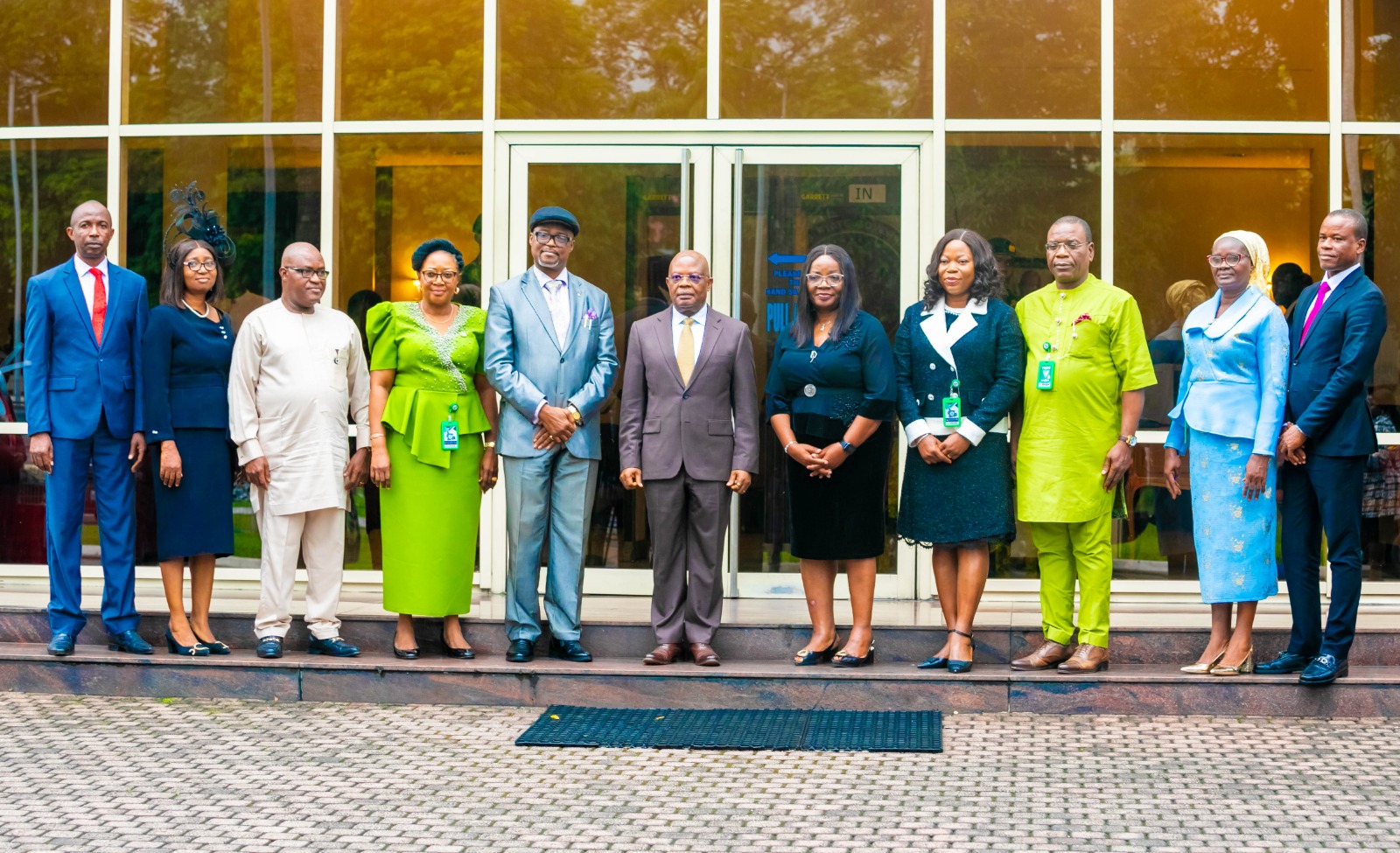
The Administrator of Rivers State, Vice Admiral (Rtd.) Ibok-Ete Ibas, has emphasized the need for innovation-driven strategies, strategic partnerships, and firm policy implementation to fully harness the vast potential of the blue economy.
Speaking during a courtesy visit by participants of Study Group 7 of the Executive Course 47 from the National Institute for Policy and Strategic Studies (NIPSS) at Government House, Port Harcourt, on Monday, Ibas highlighted the importance of diversifying Nigeria’s economy beyond oil by leveraging maritime resources to create jobs, enhance food security, strengthen climate resilience, and generate sustainable revenue.
The Administrator, according to a statement by his Senior Special Adviser on Media, Hector Igbikiowubo, noted that with coordinated efforts and innovative solutions, the blue economy could serve as a catalyst for inclusive growth, economic stability, and long-term environmental sustainability.
“It is estimated that a fully developed blue economy could generate over $296 million annually for Nigeria, spanning fisheries, shipping and logistics, marine tourism, offshore renewable energy, aquaculture, biotechnology, and coastal infrastructure,” he stated.
“We must transition from extractive practices to regenerative, inclusive, and innovation-driven solutions. This requires political cohesion, intergovernmental collaboration, robust infrastructure, and institutional capacity—all of which must be pursued with urgency and intentionality,” he added.
Ibas urged sub-national governments, particularly coastal states, to domesticate the national blue economy framework and develop tailored strategies that reflect their comparative advantages.
He stressed that such efforts must be guided by disciplined planning, regulation, and investment to maximize the sector’s potential.
Highlighting Rivers State’s pivotal role, the Administrator outlined its strategic advantages as follows:
•Nearly 30% of Nigeria’s total coastline (approximately 853km)
•Over 40% of Nigeria’s crude oil and gas output
•More than 33% of the country’s GDP and foreign exchange earnings
•416 of Nigeria’s 1,201 oil wells, many located in marine environments
•Two of Nigeria’s largest seaports, two oil refineries, and the Nigerian Liquefied Natural Gas (NLNG) terminal in Bonny Island—one of Africa’s most advanced gas facilities
Despite these opportunities, Ibas acknowledged challenges such as pollution, coastal erosion, illegal oil refining, unregulated fishing, inadequate infrastructure, and maritime insecurity.
He reaffirmed his administration’s commitment to institutional reforms, coastal zone management, and inter-agency collaboration to build a governance structure that supports a sustainable blue economy.
“Sustainability must be embedded in our development models from the outset, not as an afterthought. We are actively exploring partnerships in maritime education, aquaculture development, port modernization, and renewable ocean energy. We welcome knowledge-sharing engagements like this to refine our strategies and enhance implementation,” he said.
He urged the NIPSS delegation to ensure their findings translate into actionable recommendations that address the sector’s challenges.
Leader of the delegation, Vice Admiral A.A. Mustapha, explained that the visit aligns with their strategic institutional tour mandate on the 2025 theme: “Blue Economy and Sustainable Development in Nigeria: Issues, Challenges, and Opportunities.”
The group is engaging stakeholders to deepen understanding of policy efforts and institutional roles in advancing sustainable development through the blue economy.
Featured
INEC To Unveil New Party Registration Portal As Applications Hit 129

The Independent National Electoral Commission (INEC) has announced that it has now received a total of 129 applications from associations seeking registration as political parties.
The update was provided during the commission’s regular weekly meeting held in Abuja, yesterday.
According to a statement signed by the National Commissioner and Chairman of the Information and Voter Education Committee, Sam Olumekun, seven new applications were submitted within the past week, adding to the previous number.
“At its regular weekly meeting held today, Thursday 10th July 2025, the commission received a further update on additional requests from associations seeking registration as political parties.
“Since last week, seven more applications have been received, bringing the total number so far to 129. All the requests are being processed,” the commission stated.
The commission revealed the introduction of a new digital platform for political party registration. The platform is part of the Party Financial Reporting and Auditing System and aims to streamline the registration process.
Olumekun disclosed that final testing of the portal would be completed within the next week.
“INEC also plans to release comprehensive guidelines to help associations file their applications using the new system.
“Unlike the manual method used in previous registration, the Commission is introducing a political party registration portal, which is a module in our Party Financial Reporting and Auditing System.
“This will make the process faster and seamless. In the next week, the commission will conclude the final testing of the portal before deployment.
“Thereafter, the next step for associations that meet the requirements to proceed to the application stage will be announced. The commission will also issue guidelines to facilitate the filing of applications using the PFRAS,” the statement added.
In the meantime, the list of new associations that have submitted applications has been made available to the public on INEC’s website and other official platforms.
-
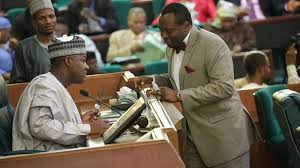
 Politics4 days ago
Politics4 days ago2027: Nigerians Victims Of Desperate Politicians – Cleric
-

 Business4 days ago
Business4 days agoCBN Comptroller Warns Against Naira Sale
-

 Politics4 days ago
Politics4 days agoObasanjo, Tinubu Mourn Audu Ogbeh’s Death @78
-
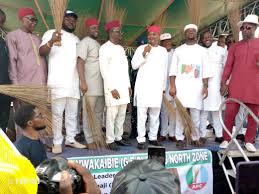
 Politics4 days ago
Politics4 days ago2027: APC Woos Enugu Gov
-
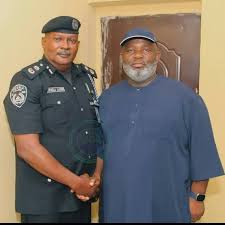
 Maritime4 days ago
Maritime4 days agoMWUN, Police Parner In Safer Port Operations
-
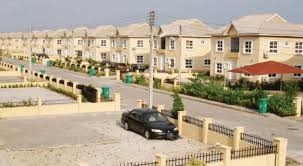
 Business4 days ago
Business4 days agoReal Estate GDP Contribution Surges To N41.3tn
-
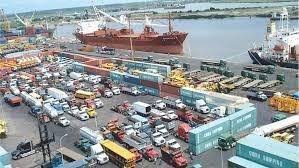
 Business4 days ago
Business4 days agoFreight Forwarders Raise Alarm Over Govt Reforms Sabotage
-
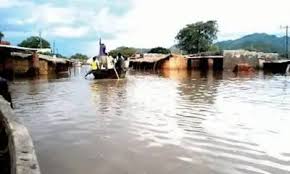
 Niger Delta4 days ago
Niger Delta4 days agoC’River Communities Seeks Govt Intervention In Humanitarian Crisis





